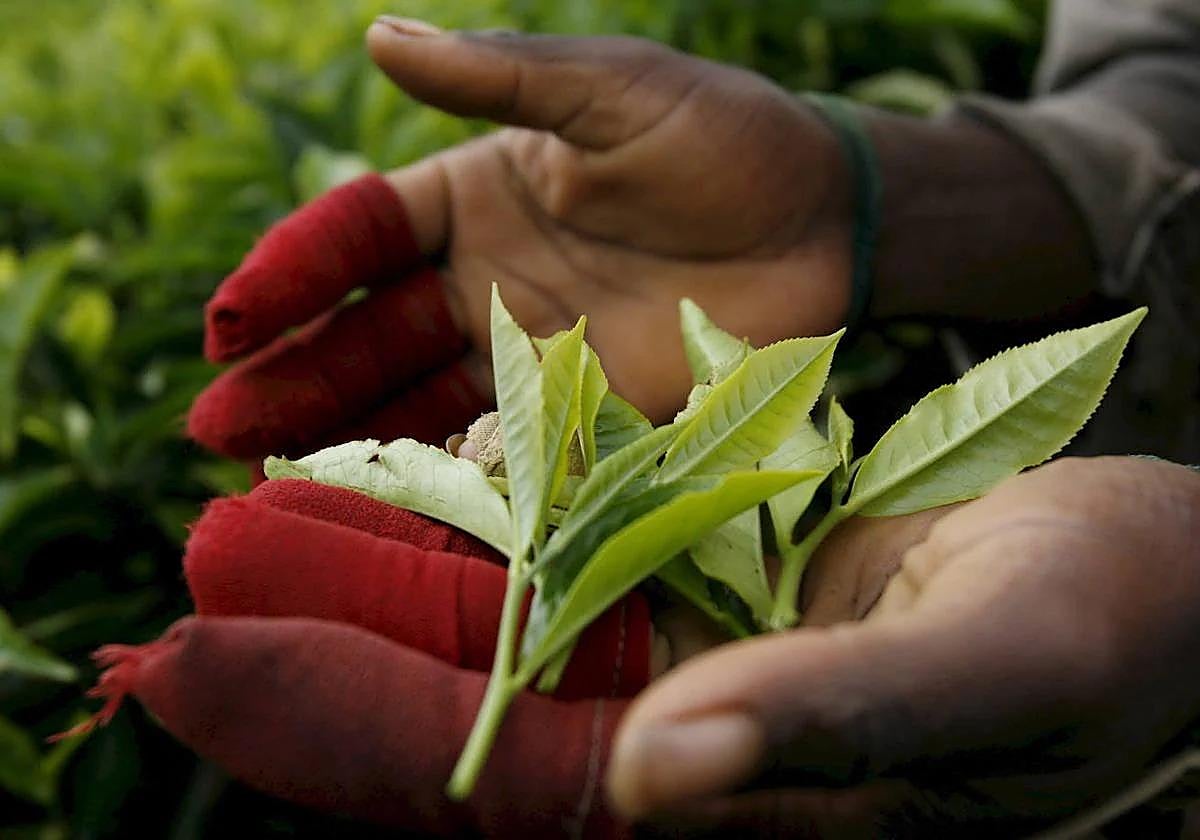Europe's first organic tea plantation is in Spain
This is how Orballo, the first to sell infusions "in tune with nature", impacts on its environment
Raquel C. Pico
Wednesday, 15 May 2024, 13:52
In the aftermath of the 2008 financial crisis, a plan to use a eucalyptus plantation to grow native chestnut trees has resulted in the first organic tea plantation in Europe. At that time, owner Gerardo Lagares had decided to turn his master's degree project into reality, and so he left Madrid and headed to the countryside in Galicia to get the initiative off the ground. However, he did not achieve the necessary acreage for this ambitious idea, so he had to rethink his project, and, in doing so, he laid the foundations for what was to end up becoming Orballo, a rural organic tea company in Paderne, Betanzos (A Coruña).
Tea was already being grown in Europe, although it was not common. Óscar Torres, Orballo's communications director, explains that there were plantations in Brest (Brittany), Wales and Scotland. These belonged to "tea enthusiasts", but had a very limited and "exclusive" production. "Orballo is the opposite," says Torres, because it is a tea that appeals to any palate.
Tea is a variety of camellia (Camellia sinensis), an ornamental plant that arrived in Galician gardens at the end of the 18th century. From there, they spread all over the country and now they are so present that there are even tourist routes that feature these plants. In fact, Galicia is the main camellia-growing area in Spain and produces three million camellias a year, according to calculations by the Spanish federation of associations of fruit, vegetable, flower and live plant exporters (Fepex).
Heirs of the camellias
"If ornamental camellias worked, why shouldn't tea plants? That's what we thought," Torres says. He points out that there were already tea plants in some Galician gardens, although with limited production and not for commercial purposes. To start their plantation, Orballo had the help of the Estación Fitopatológica Areeiro, which had already carried out tests and investigated whether the plant was compatible with Galicia. In 2016, they had the first results from their plantations.
Growing tea requires not only geographical conditions, but also knowledge. Torres acknowledges that it is not easy, because access to the plants themselves is not straightforward, and it is also a constant learning process to care for them correctly. "We seek advice and acquire knowledge," he says. "Tea making is like cooking. Cooking for one is not the same as cooking for a thousand," he adds.
They have had to learn how to make good tea and how harvests at different times of the year make it possible to get the different varieties of this drink.
"Tea making is like cooking. Cooking for one is not the same as cooking for a thousand"
Torres talks about wine and its positive impact in rural areas as an example of what tea could be. It is true that vine cultivation has a domestic tradition: in Galicia it was common to make wine at home, but there is no tradition of drinking tea.
It is a bit like what happens in general in Spain with infusions, although the manager exemplifies with the 'meigas' (a term that is used, especially in Galicia and Asturias, to refer to a person who has extraordinary or magical powers) that they are not really strange. What else did the 'meigas' do but use herbs to create their remedies? And, of course, the cultivation of aromatic plants is not foreign to the Spanish countryside. "Mediterranean culture has a long tradition of aromatic plants," he adds.
Perhaps the fact that we do not drink as many herbal teas as in other cultures - although the latest Alimarket studies show that in Spain they are being consumed more and more - leads the layman to lose sight of their potential for the rural environment. Torres points out the impact aromatic plants have already made: the Betanzos area is one of the biggest laurel exporters in Europe, and aromatic herbs are very predominant in the perfumery industry.
"As good nature lovers"
But back to Orballo and its teas and infusions, what is striking is precisely the fact that they are the first organic teas on the continent. For tea purists, this certificate might not be so important, says their communications manager, but for them it was, because this was the type of agriculture they wanted to go for. They want to "do things as good nature lovers". Cultivation is also part of caring for the environment. After all, the Orballo fields are in the area of the Biosphere Reserve As Mariñas Coruñesas e Terras do Mandeo.
Certifying the land to be organic takes time - understanding the soil and letting it recover to get it back to good health. "The neighbours at first told us that we were just cutting grass," Torres jokes. "Our philosophy is to grow high quality crops and not to damage the land," he explains, "to give more to the land than we take from it." Now, they are already working with some 20 hectares of aromatic plants for their herbal teas.
This kind of approach to agriculture also has an impact on his environment: in his fields one sees many birds and insects. "You see bugs, you see life," he says. It is not that pests are absent because the land is given an ecological certificate, because nature itself is in charge of managing them. For example, aphids are eaten by ladybirds. Torres believes it is a more sustainable model over time, because it is "like the cycle of nature". In fact, as he points out, plants are more resistant because they have been able to learn to use their own weapons. "It's another way of looking at it," which implies a change of mentality and agricultural philosophy.
